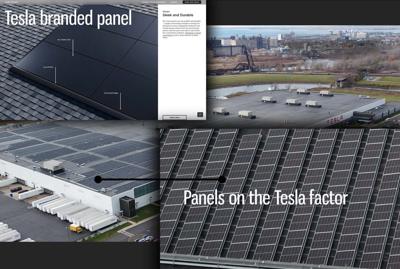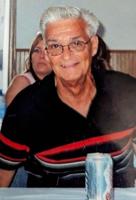The Tesla factory in South Buffalo, built to manufacture solar panels, today uses solar panels on its roof made by a competitor in China.
That’s a fact state officials have reluctantly confirmed in response to a Freedom of Information request submitted by Investigative Post. Officials initially refused, claiming the identity of the manufacturer was a “trade secret,” but relented after an appeal filed under the FOI Law.
Tesla has covered about one-third of the factory’s roof with panels manufactured by LONGi Green Energy Technology, a Chinese firm and one of the world’s largest manufacturers of solar modules. It plans to cover the rest by the end of the year. Together, the panels will generate about 7.5 megawatts of electricity. Tesla also reportedly uses LONGi solar products at its plant in Austin.
Tesla has borne the approximate $10 million cost for the panels. New York taxpayers, meanwhile, were on the hook for the $959 million used to build and equip the factory they’re installed on. Tesla told state officials in January that the panels could provide 30 percent of its electricity needs.
Tesla sells both commercial and residential panels, as well as a Solar Roof, composed of individual, power-generating shingles. Its panels reportedly are manufactured by a Korean firm.
Both module manufacturing and assembly of the Solar Roof once happened in Buffalo, but today all three products rely on solar modules made by other firms. Assembly of Solar Roof tiles still occurs in South Buffalo.
For Tesla, the revelation of its outsourcing is evidence of its struggles in the solar industry since it acquired SolarCity in 2016. SolarCity had previously acquired solar module manufacturer Silevo, intending to make, sell and install solar panels. After Tesla acquired SolarCity, however, which included taking over the deal with New York to occupy the Buffalo factory, Tesla sidelined Silevo, opting to have Panasonic manufacture solar modules for its Solar Roof.
Tesla and Panasonic’s production of the Solar Roof — an aesthetic alternative for residential rooftop solar — replaced plans by Silevo and SolarCity to manufacture traditional solar panels. Solar Roof production in South Buffalo was meant to spark spin-off development and attract other clean energy companies to the city.
But as Investigative Post reported last year, Tesla struggled to produce the Solar Roof at scale, eventually prompting Panasonic to move its 400 Buffalo jobs to Malaysia. At the time, Panasonic told federal regulators that it was moving the jobs overseas because “the demand for Panasonic’s solar cells has decreased due to Tesla and other companies importing solar cells from China.” In 2020, just before Panasonic left Buffalo, pv magazine published evidence that Solar Roof tiles were arriving at customers’ homes from China, by way of California.
In other words, Tesla outsources the solar panels it uses and sells and uses foreign-made parts for its Solar Roof, assembled in Buffalo. As of last spring, only 3,000 Solar Roofs were installed, the energy trade group Wood Mackenzie found, far fewer than Tesla’s projections for the product.
In addition to assembling the Solar Roof, Tesla currently uses the factory to make charging equipment for its cars and fix car batteries. It also has a large team of data analysts working to program its self-driving vehicle algorithm.
Despite its plans to manufacture its own solar modules in the United States, solar expert Johnny Weiss said it makes sense that Tesla would use modules manufactured by LONGi.
“Most of the world’s [photovoltaic] modules are manufactured in China,” said Weiss, co-founder of Solar Energy International, a nonprofit that trains workers for the solar industry. “[LONGi] has been the market leader in manufacturing solar panels for a long time. Obviously, most countries find it extremely difficult to compete with Chinese manufacturing.”
For more on this story, visit Investigative Post.
















Commented
Sorry, there are no recent results for popular commented articles.